January 30, 2020
Dr. David Rabin, MD, PhD is a guy who designed a fascinating wearable that he showed me a few weeks ago when he came to my house in Spokane, WA.
A board-certified psychiatrist, translational neuroscientist, and inventor specializing in the treatment of post-traumatic stress disorder (PTSD), depression, anxiety, and substance use disorders, Dr. Rabin has spent the last 14 years researching treatments to combat the negative effects of chronic stress on physical and mental health.
He received his MD in medicine and his PhD in neuroscience from Albany Medical College and trained in psychiatry at Western Psychiatric Institute & Clinic at the University of Pittsburgh Medical Center.
Dr. Rabin helped to organize the world’s largest controlled study of psychedelic medicines in collaboration with colleagues at Yale, the University of Southern California, Mt. Sinai, Modern Spirit, and MAPS (Multidisciplinary Association of Psychedelic Studies) to determine the mechanisms of the dramatic therapeutic benefits observed following psychedelic-assisted psychotherapy in treatment-resistant mental illness. The study has begun and is collecting DNA samples from patients with treatment-resistant PTSD who are participating in the MAPS-sponsored Phase 3 FDA trial of MDMA-assisted psychotherapy to evaluate the gene expression changes that result from the therapy.
He is also the founder and executive director of the Board of Medicine, a nonprofit organization of physicians and scientists spearheading the development of the world’s first evidence-based peer-reviewed clinical guidelines for the safe use of complementary and alternative medicines including medical cannabis. Dr. Rabin works with patients with treatment-resistant conditions like post-traumatic stress disorder (PTSD), depression, and substance use disorders. In his work, he found that when patients were in a calm, safe environment their physiological markers of stress improved, their mood got better, and they were better able to focus and manage their symptoms. He also found that mindfulness techniques and deep breathing worked quite well to reduce stress in patients, but that his patients had a difficult time practicing these techniques on their own in their day-to-day lives.
In 2014, Dr. Rabin began his research on what would become the device I'm referring to, “Apollo” in a neuroscience lab at the University of Pittsburgh.
After exploring academic research on mindfulness, biofeedback, deep breathing, and a host of sensory techniques including music therapy, Dr. Rabin found that touch is an often overlooked, but an incredibly vital pathway for quickly establishing relaxation in the mind and in the body.
He quickly got to work developing Apollo, a breakthrough wearable technology that uses the neuroscience of touch and vibration to combat the negative effects of stress during his research at the University of Pittsburgh.
Apollo sends gentle waves of vibration to your body that are clinically shown to bring your heart, lungs, and mind into balance, resulting in improved heart rate variability (HRV). By signaling safety to the body through your sense of touch, Apollo offers you control over your stress, so you can tackle whatever comes next. After clinical trials of the Apollo technology demonstrating its reliable effects on mood, sleep, and focus, Dr. Rabin co-founded Apollo Neuroscience to make the discovery available to the public.
Chronic stress tells your body that you’re under threat. These consistent disturbances put your body into fight-or-flight, making it difficult to stay calm, focus your attention, and get good sleep. Apollo’s vibrations work by signaling safety to the brain, thereby soothing the stress response and rapidly restoring balance to the body.
Apollo Neuroscience has created the first wearable system that upgrades your body instead of just tracking it. Clinical studies show that Apollo increases physical endurance, mental performance under stress, access to meditative states, and helps users reach relaxation before bed rapidly by improving heart rate variability (HRV). Apollo’s effects occur within 5 minutes of use and have no known side effects. Apollo’s AI mobile app delivers gentle layered vibration frequencies to the body via a small modular wearable worn on the ankle or wrist. Users will be able to connect Apollo’s mobile app to Apple Health Kit to see how their biometrics improve with Apollo use over time.
The Apollo system has been tested and independently validated by individual members of a number of different institutions in the military and many Veterans, several academics at Universities, >10 elite athletics clubs, as well as in two University clinical trials with 6 more trials currently underway. The Company has over 1500 beta testers and has conducted over 500 long-term case studies with consistent results. Positive symptom improvements and voluntary reductions in habit-forming substances such as opioid narcotics, benzodiazepines, amphetamines, and caffeine have been reported in those with chronic conditions worsened by stress including insomnia, chronic pain, and PTSD.
The most recently completed trial of Apollo at the University of Pittsburgh comparing EEG patterns of 25 naive meditators to 25 experienced meditators demonstrated that Apollo frequencies made naive meditators’ brainwaves look nearly identical to those of experienced meditators within 12 minutes. Apollo is currently being studied in a 100-subject PTSD trial between the University of Pittsburgh and the New School (NYC) with an FDA trial for PTSD at the Pittsburgh VA Hospital in planning for Winter 2020. All studies and trials of the Apollo technology have been supported entirely with non-dilutive funding and grants. The Apollo system has been developed to FDA ISO 13485 regulatory requirements and HIPAA Compliance.
During this discussion, you'll discover:
-The link between the natural need to feel safe and stress…11:45
- Autonomic balance: Understanding the link between the sympathetic and parasympathetic nervous systems is key
- Safety and threat are two major stimulants to the nervous system
- Safety to the parasympathetic
- Threat to the sympathetic
- Both natural instincts for self-preservation (diverting energy for the situation)
- Downsides of constantly being in sympathetic state
- Affects fertility and libido
- Athletes experience loss of libido during training
- Corporate burnout is considered a physical condition due to constantly being in a state of stress (sympathetic system)
- Preschoolers are often prescribed antidepressants due to stressors in their environment
- The human body is not meant to tolerate the stressors of modernity
- The body may be under a lot of stress even if we feel safe (roof over our head, food in the fridge, etc.)
-How trauma affects one's ability to feel safe…23:30
- “Trauma” by definition may be more far-reaching than one may think
- Safety includes, but is not limited to the physical element
- Trauma is one or many meaningful or intense unsafe experiences over time
- Parents ignore you multiple times
- Perceptions of being unlovable or cannot love others
- Constantly worried about finances
- Affects the parasympathetic nervous system
- Book: Top 5 Regrets of the Dying by Bronnie Ware
- More connected w/ friends
- Worked less
- Choose to be happier
- Courage to express true self
- Courage to be who I am rather than who people expected me to be
- Dr. Gabor Maté
- Trauma is a disconnection from self
- Sanskrit word for “self” is synonymous with “health”
- Breathwork and meditation (Telling your body you have time to breathe and relax)
- You must let go of attachment to things in the past in order to present to the world your true self
-Whether or not epigenetic trauma is a legit concept…34:55
- At one time a theory, now well-established in the scientific field
- Rachel Yehuda: “How Trauma and Resilience Cross Generations”
- Dutch potato famine: descendants experienced similar symptoms (depression, obesity, schizophrenia, etc.)
- NYT Article: Can We Really Inherit Trauma?
- The Famine Ended 70 Years Ago, but Dutch Genes Still Bear Scars
-How psychedelics are used to reverse trauma…45:00
- Psilocybin and ayahuasca:
- Used traditionally to release trauma
- Are being used to reverse trauma
- Highly efficacious while used w/ MAPS therapy on PTSD patients
- Psychedelics are for “mind-manifesting”; not a party drug
- Ketamine is the only legal psychedelic in the U.S. (MDMA, psilocybin expected to clear hurdles soon)
- BGF podcast with Matt Cook about ketamine
- MDMA Journey by Tucker Max
- Everyone has trauma; they're all manifesting in different ways
- Depression
- Schizophrenia
- Anxiety
- Apollo to be used (eventually) after MDMA is administered
- We don't heal because of the medicine; the medicine empowers the body's innate ability to heal itself
- Breath is the gateway to the spirit
- Apollo was created to replicate the effects of expensive MDMA treatments with much more accessibility
-The technology behind the Apollo Neuroscience wearable…1:01:25
- Gentle vibrations to the body (like an ocean wave, or cat purring on you)
- Touch is the most effective means of creating the feeling of safety
- Made up of sound frequencies
- Skin perceives it much more than the ear
- Music changes resonance patterns in our bodies in different settings (working out, meditating, etc.)
- The 7 states in the device:
- Wakefulness (first thing in the morning)
- Clear and focused (for long deep work, public speaking, etc.)
- Rebuild and recover
- Social and open (social safety and flow, need to be “on”)
- Meditation
- Relax and recharge
- Sleep
- Amount of time you'll use the device are case-dependent
- It becomes more effective over time; the body becomes sensitized to it
-What the Apollo is made of…1:11:40
- Built to FDA specs
- Hypo-allergenic
- Only active w/ Bluetooth when using the app (very low EMF exposure)
- HIPAA compliant
-Rapid-fire questions about the Apollo…1:15:55
- Is it safe for children and the elderly?
- Yes, it's been tested successfully on ages 3-93
- Can it work on any part of the body?
- Yes, provided you adjust the settings appropriately
- Is it currently available to the general public?
- Yes. Click here to get the Apollo
-And much more…
Click here for the full written transcript of this podcast episode.
Resources from this episode:
– The Apollo wearable (15% discount automatically applied when you use my link)
– BGF podcast w/ Dr. Matt Cook on how Ketamine works
– The Top Five Regrets of the Dying: A Life Transformed by the Dearly Departing
– How Trauma and Resilience Cross Generations
– NYT Article: Can We Really Inherit Trauma?
– Dr. Gabor Maté website
– The Famine Ended 70 Years Ago, but Dutch Genes Still Bear Scars
– BGF podcast with Dr. Matt Cook about ketamine
– The Renegade Pharmacist SOMA breathwork routine that includes the holotropic routine I do
Episode sponsors:
–Kion Lean: Support for normal blood sugar levels and healthy energy metabolism, even after large, carb-rich meals. Ben Greenfield Fitness listeners, receive a 10% discount off your entire order when you use discount code: BGF10.
–Organifi Red Juice: Enjoy all the benefits of the 11 superfoods and their micronutrients that help increase resting metabolism, support cardiovascular health, and remove toxins to turn back the hands of time! Receive a 20% discount on your entire order when you use discount code: BENG20
–ButcherBox: Delivers healthy 100% grass-fed and finished beef, free-range organic chicken, and heritage breed pork directly to your door on a monthly basis. All their products are humanely raised and NEVER given antibiotics or hormones. For 2 lbs of 100% grass-fed beef and 2 lbs of pure bacon for FREE, PLUS $20 off your first box go to Butcherbox.com/Ben.
–Thrive Market: Organic brands you love, for less. Your favorite organic food and products. Fast and free shipping to your doorstep. Receive a gift card up to $20 when you begin a new membership using my link.

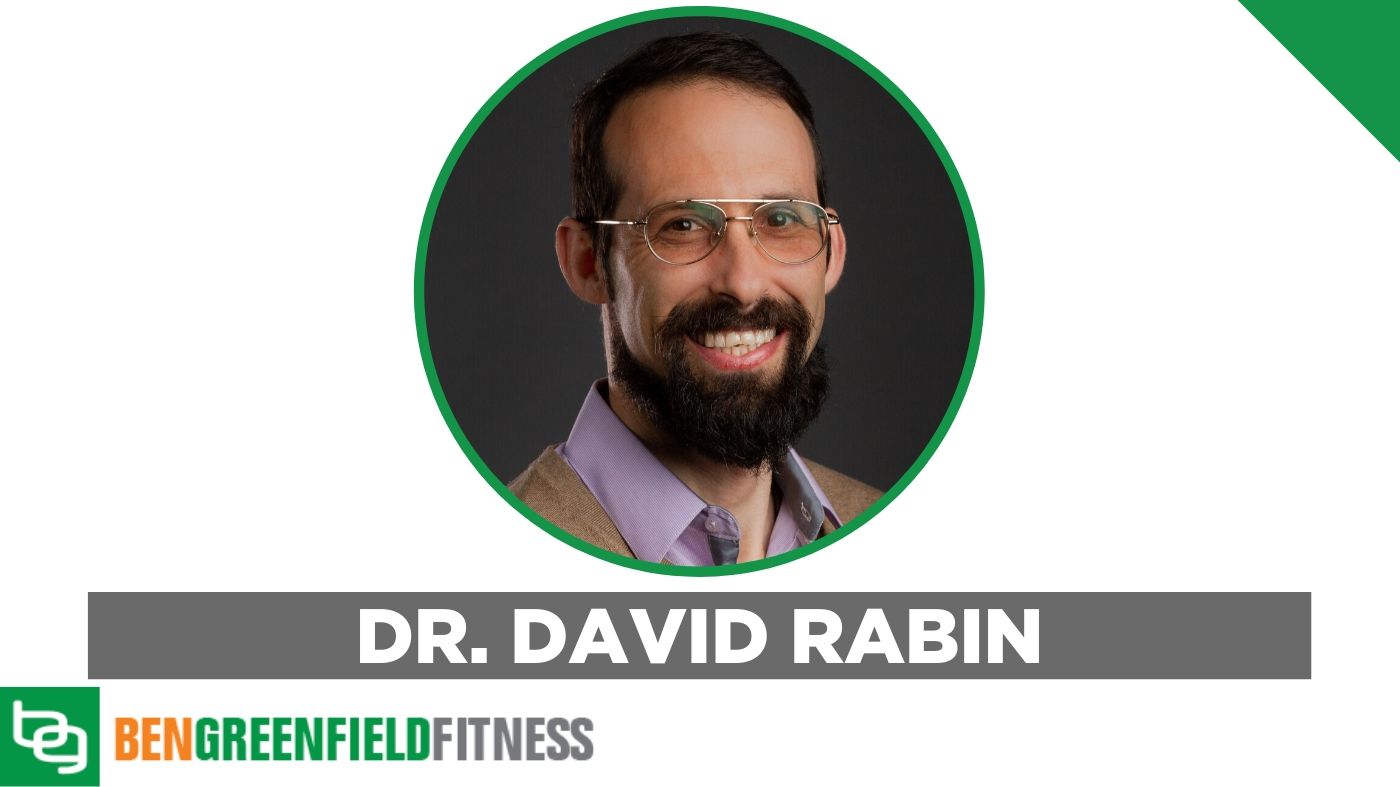

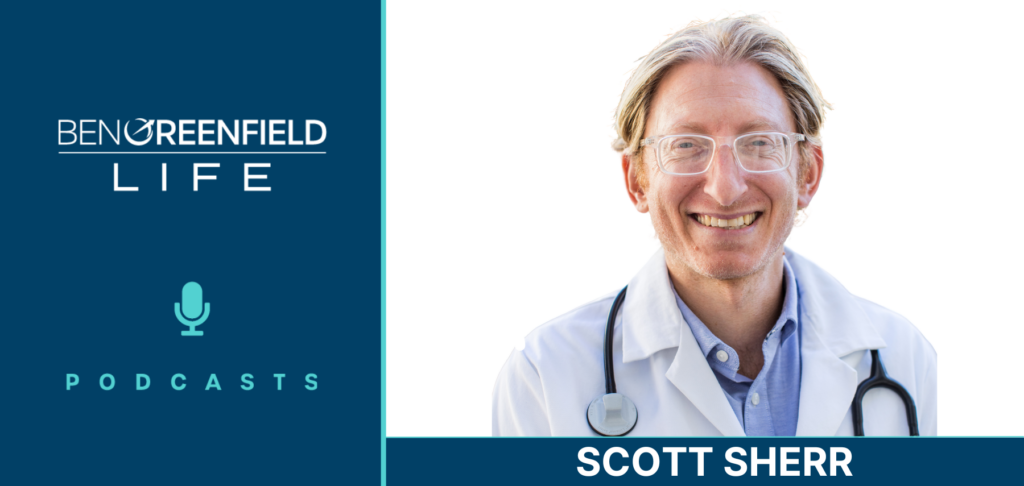

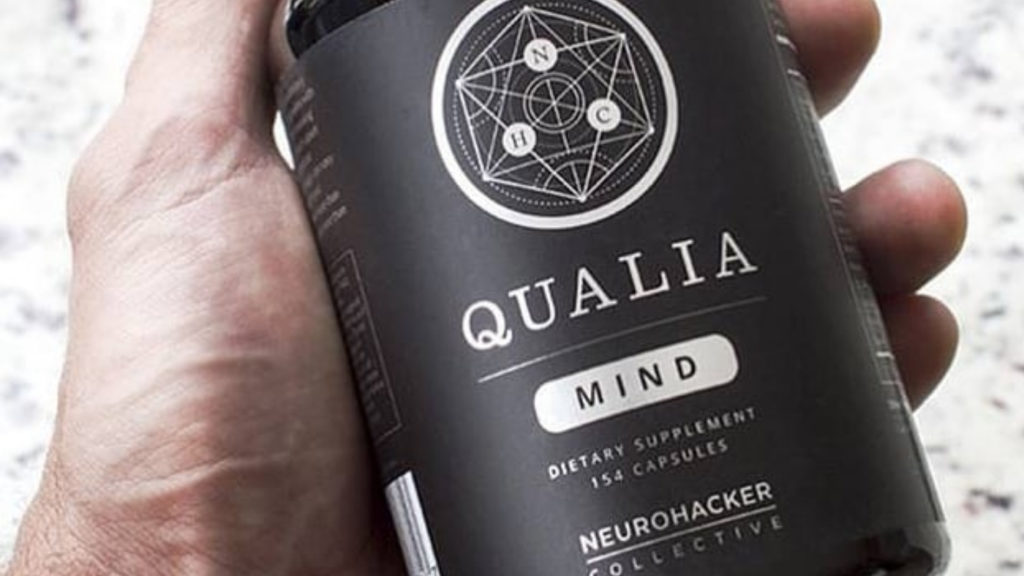
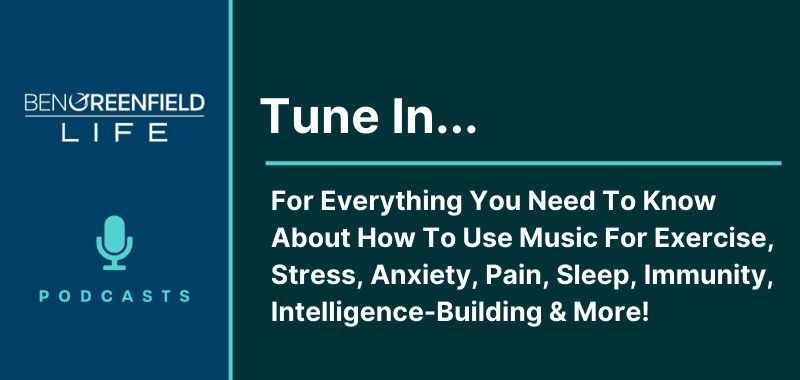



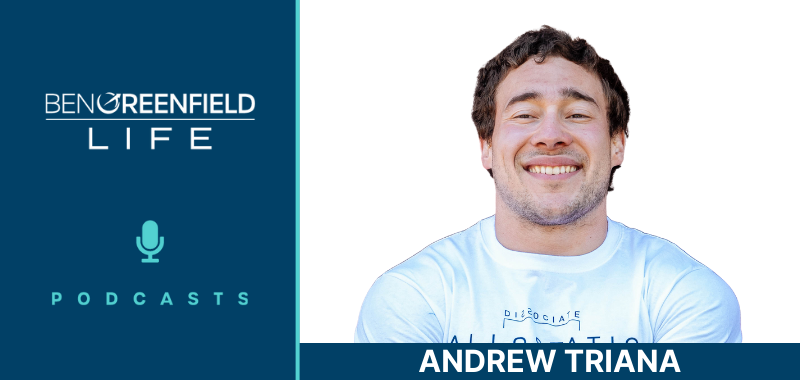
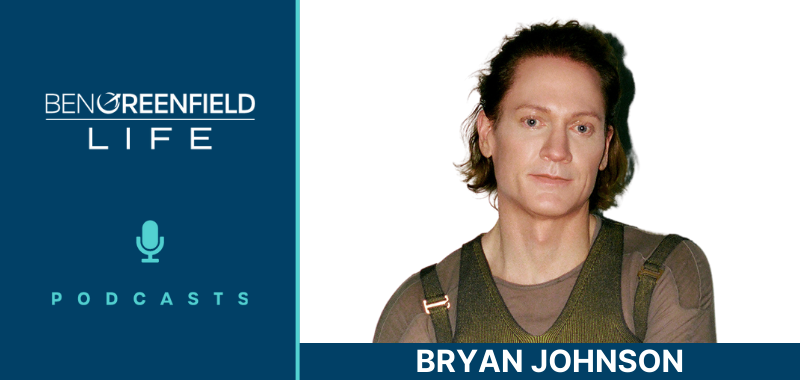
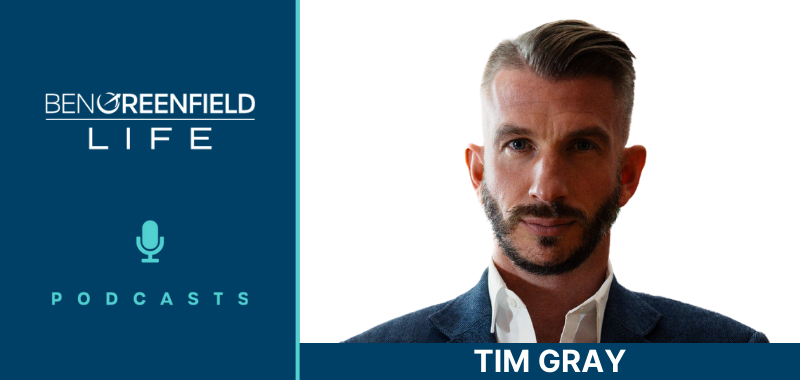
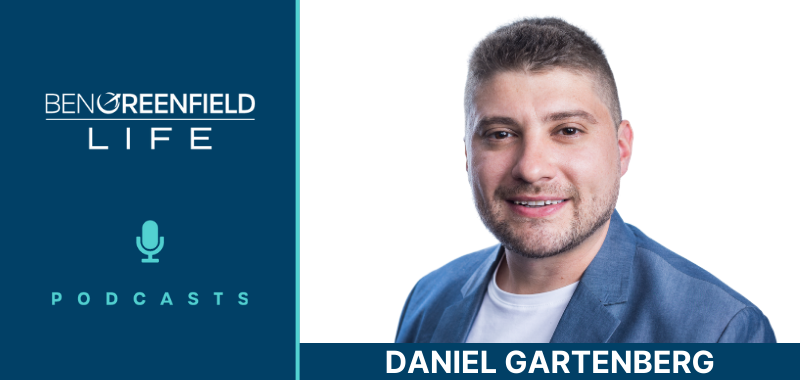
Hello –
My wife recently ordered the Apollo through your link for my christmas gift this year.
After completing the checkout, the discount (supposed to be automatic with your link) did not apply.
I have proof of purchase, what do I need to do.
Thank you for your time.
How effective is this device compared to medication for things like anxiety and depression, or is it considered adjunct therapy?
How does the Apollo compare to the Fisher Wallace device?
It seems that either my post here from a month ago or on FB a bit later has worked out. I got my device today.
Hi, I heard through Nick Polizzi’s newsletter about Apollo Neuro and purchased a device in September. It arrived in October at customs in Barcelona, who couldn’t contact me as there was no email address or phone number, so it was returned by Fedex to the company, who received it (I got the confirmation number). All my efforts to contact customer support to either get the device resend or a refund were unsuccessful. I am more than dissapointed! I still hope that there will be a solution, because I don’t want to start warning people, but enjoy better sleep and deeper meditation and give good reviews.
Dear Ben,
I hope you are great as always.
Did you use neo rhythm and if yes
What is your opinion
Thank you for your time to answer question.
All best to you and your family
Sincerely
Robert
I have a Neorhythm and it works differently from the Neuro. The software app for Neorhythm is a bit buggy as I have experienced on Android, so I have been using it less. I have had good results with the Neorhythm but both devices work on different principles.
How does neorhythm with psychedelic assissted therapy work? Does it work like you wear the neorhythm and it stimulates your brain like psychedelics work on your brain?
Dear Dave,
Is Appolo available in EU, so I don’t need to pay all Taxes on top of purchase price if I buy it directly from your website
Thank you in advance for your reply
Sincerely
Robert
How does the Apollo compare to NuCalm . I am considering both
Thanks,
Darrin
Hi Darrin,
Apollo is a wearable that gives you the benefits of meditating or of deep focus anywhere you go and helps you to enter 7 different states of consciousness. NuCalm, like Sensate, is really focused on meditation and sleep specifically and you have to take time out of your day-to-day routine to use it. You do not have to take time out of your day-to-day routine to use Apollo. That being said, the combination of NuCalm and Apollo is quite nice.
How is the Apollo different from the Sensate?
From a quick review, looks like Sensate is something you put on for a few minutes a day and Apollo is something you wear continually. Both are aimed at the same goal.
Hi Jessica,
Apollo is a wearable that gives you the benefits of meditating or of deep focus anywhere you go and helps you to enter 7 different states of consciousness. Sensate is really focused on meditation specifically and you have to take time out of your day-to-day routine to use it. You do not have to take time out of your day-to-day routine to use Apollo.
I have been using the Apollo after my run and bike workouts in the Rebuild and Recover setting…the effects are absolutely noticeable!
So glad you’re having a good experience David!
I purchased a device mid March. Received it in June. The device might as well be a toy that I paid $300 for. It never worked and I tried to contact Apollo Neuroscience several times through email, website request and by phone. I’m very disappointed as there is no way to try the device and my 30 day trial period is in effect. I have not heard anything back about a refund or a new device!
Dear Christy,
I’m so sorry to hear that. Occasionally with brand new hardware products, there are issues that come up that are unforeseen.
We are happy to replace your unit with a working one as soon as possible and we would love to take a look at the broken unit you have to figure out what is going on with it as this is exceptionally rare for us and we want to make sure this doesn’t happen to anyone else. We have also been in the process of switching our customer service systems, which is why your message might have been missed. Our customer service team will take care of getting you another product, or a refund if that is what you prefer.
We are grateful for your patience at this incredibly tumultuous time.
All the best,
Dave
For dealing with a situation that immediately triggers high stress, which level would you suggest?
Hi Teri,
Here is a sample schedule with how we recommend most people start using Apollo for managing situations that trigger high stress: https://www.dropbox.com/s/08694a4lh29mcd6/apollo-routine-insert_4.20.pdf?dl=0
This is just a sample of what we recommend, so feel free to adjust your usage to suit your specific needs based on these guidelines.
All the best,
Dave
David do you ship to Australia? Not in the selection
Hi Ray,
Thanks for asking! We should be shipping to Australia starting in July or August. We will make an announcement via email if you get on our email list.
All the best,
Dave
Is there a coupon code, Ben, for Apollo purchases?
Thanks,
Claire
No code, but use my link and 15% off will automatically be applied at checkout: https://bengreenfieldfitness.com/apolloneuro
I have the Apollo for three weeks now. Until now I can‘t measure an improved HRV with my oura.
– in the evening I do the sleep program for 60 Minutes (wave intensity 50%)
– during the day relax program for 60 minutes (60%).
Should I adjust the usage?
Hi Corinna,
Thanks for asking such a great question! Consumer wearables that measure HRV are notoriously inaccurate because they are not used in a clinically standardized environment; that is, a test environment without interference. The gold standard for HRV measurement is an ECG (electrocardiogram) for 3 minutes at least, which is how we determined that Apollo waves were capable of reliably boosting HRV within 3 minutes under stress. What most people don’t realize is that HRV measurements are impacted by literally everything from movement to stressful thoughts to blinking and breathing. The Oura Ring will also tend to provide unreliable HRV measures if it doesn’t fit just right.
That said, we have had hundreds of users reporting substantial increases in their HRV measurements with Apollo use within hours and over a period of weeks to months. Most of these users use all the Apollo modes, not just two. I would recommend trying to use your Apollo during the day on Clear and Focused and Social and then in the evening and night on meditation, relax, and sleep. Over time, you should see an improvement in your HRV. Of course, keep in mind what I mentioned above when you’re doing this to keep expectations in line with consumer tech, which is not laboratory or clinical grade technology.
Hey Corinna,
I’m including a pdf here for you and anyone else interested in learning about the best use recommendations that we have learned from our users/studies: https://www.dropbox.com/s/08694a4lh29mcd6/apollo-routine-insert_4.20.pdf?dl=0
All the best,
Dave
I finally had my device delivered about 2 weeks ago. It stopped charging a week ago and I have been totally unsuccessful in reaching anyone at Apollo or getting a response to my emails, VM, or online chats. Someone please contact me!
Hi Kelley,
Our sincere apologies for the issues! We will do our best to get your product working or replaced as soon as possible. I have personally put you in touch with our customer service team.
All the best,
Dave
I would love to be able to experience something good from this product. I purchased for my husband and the initial set up went well. Battery life is very short. After a few times of use, the device would not connect via Bluetooth. I left 3 messages on the voice mail with no return call. I read the Q&A on your website. I did a factory reset and set it up with my phone. The device worked once on relaxation mode during the day. I tried to use it for sleep. The device connected to my phone but the session quit after a few minutes. I repeated this 4 times and every time the session quit. It really shouldn’t be this hard. Turn a device on or off, pick a program and run, charge it– that should be it. I’m fed up with this. I need a refund or a replacement. I would be willing to consider repurchase after the bugs are worked out.
Hi Linda, I thought a reply got sent to you here, but I just wanted you to know that we are more than happy to replace your product with a new one. All of the issues you were struggling with have now been fixed. Our sincere apologies for the struggles!
Sorry to Ping on this forum. I have been trying to reach support but there is no phone number and no one is responding to my case
I got one! Love it. Any tips for using with Oura to track sleep? I wear on my leg and Oura thinks I’m awake at night when I use the sleep setting.
Hey Mitch,
We have never actually seen this from folks using both the Apollo and the Oura Ring together. My initial recommendation would be to try wearing the Apollo on the ankle that is on the opposite side of your body from the hand on which you wear your Oura Ring. Curious to know if that helps. Occasionally, Oura will misrepresent sleep assessments based on movement during sleep, restless sleep, or nightmares, loose fit, etc. I have seen this many times with a number of colleagues using this device. Unfortunately, all of the biometric sensors available to us at this point have these drawbacks, which are not unique to Oura.
Hope this helps!
Dave
Hi there, found this podcast really interesting and especially the part about passing on trauma to other generations. As it happens I am reading a book at the moment called Switch on Your Brain by Dr Caroline Leaf and she talks about how your thought life affects your epigenetics and so if you have suffered trauma and your thoughts and feelings Center around that , that those negative thoughts can affect you so I found some interesting similarities in what you are saying here.
Thanks for the comment Duncan!
Hoping Dr. Rabin can chime in, will this something you’ll have to use for your whole life? I don’t mind if I have to use it every time I meditate or other purposes, but if I have to depend on it for anxiety, it doesn’t seem therapeutic.
Does it have a mode for inducing flow or keeping you in flow?
I’ve heard you describe the mechanism of action as sound waves but isn’t it just a vibration motor?
Are you thinking of incorporating interactive breathwork with the Apollo i.e. in the app and using the device as a cue to breath in or out?
Also, does the device interfere with being present with your emotions? I believe that just being with your emotions is one of the most important things you can do to complete the trauma cycle, instead of trying to suppress or run from them.
As a psychiatrist and neuroscientist specializing in addiction and trauma medicine, the Apollo System does not induce any kind of tolerance or dependence. By stimulating the nervous system in a natural way (through the sense of touch), Apollo teaches the user over time how to be better without Apollo. It has a learning effect similar to that seen with breathing and mindfulness training.
All the Apollo wave settings help facilitate access to different flow states depending on the goal.
Sound waves are vibrations at a frequency we can hear. Apollo waves are at a frequency we can hear, but mostly feel. Sounds waves are generated by motors all the time.
Yes. You can choose to breath with Apollo if you want to. If you choose to match your breath to the Apollo frequencies, it will make the effect stronger.
Apollo works by helping us to be more present with our emotions and anything it is that we put our mind to.
I ordered one fairly soon after the podcast, so I should be receiving my soon. I will happily report back with my results.
But, you can already see really impressive results by looking at the studies on the website. What I’m most excited about is the potential to raise my HRV, and lower my sympathetic nervous system activity.
Hi Erik,
did you have any success testing it properly?
Hello. Would you be able to briefly compare Apollo to Hapbee (recommended by D.Asprey) which seems similar. Which one is more effective? Thanks a ton!
I haven't tried the hapbee.
Apollo seems to be the only vibration stress reduction/HRV lowering device.
Hapbee
– Headband for different states (calm, alert, focused, sleepy)
– PEMF (0-22kHz)
– Science – not specific to Hapbee (white paper on its way), PEMF in general has lots
Muse
– Meditation/relaxation/sleep
– Headband
– EEG-feedback therapy
– Science as per URGONight
NeoRhythm
– Headband
– low intensity PEMF (2.5 mT)
– Science: Jerman et al., 2019i https://doi.org/10.4236/oalib.1105741 ; Jerman et al., 2019ii https://doi.org/10.4236/oalib.1105782
Sleep Focused
Deep Sleep Headband (Phlips)
– Headband worn during sleep
– Recommended ages 18-40* who sleep 5-7 hrs per night
– Detection and enhancement (via audio tones) of deep sleep
– Science: Garcia-Molina et al., 2018 https://iopscience.iop.org/article/10.1088/1741-2… *effect not seen in patients > 40 / Tononi et al., 2010 https://www.researchgate.net/publication/27954524…
URGONight
– Brain training for sleep
– Headband worn during day
– EEG-feedback therapy
– Science. Nothing URGOnight specific but they cite Hoedlmoser et al., 2008 https://www.ncbi.nlm.nih.gov/pmc/articles/PMC2572… & Cortoos A. et al., 2010 https://doi.org/10.1007/s10484-009-9116-z. on website. (also found Schabus et al., 2014 https://doi.org/10.1016/j.biopsycho.2013.02.020)
Sleep Pebble (Zeez)
– Small device put under or near pillow during sleep
– low intensity PEMF (Alpha 8-12 Hz, theta 4-8Hz and delta 0.5-4Hz) in a timed pattern.
– Science: none pepple specific.
Dreem2 (ResMed)
– Headband worn during sleep
– CBT-i & pink noise during deep sleep
– Sleep tracking
– Science, plenty on CBT-i, see Deep Sleep headband for audio tones during deep sleep
this is quite interesting and useful. If you put this together in a shared Google doc and posted perhaps I can put in shownotes as resources for folks…
Here it is, work in progress as always:
https://docs.google.com/spreadsheets/d/1mULF-n_ZwR0yT-vsgfdmpKo0mfQ3ihMtYKXSFqyA9Qs/edit?usp=sharing
Hi, thank you so much, very interesting, Have you tested Muse headband? is it accurate and helpful for meditation?
Hey Caleb,
Just to clarify, Apollo is the only wearable technology to IMPROVE HRV.
WOW thank you so much, Caleb! I’m trying to parse out the best all-round device on the market to date – super helpful!
Hey can you provide any insight on his this compares to the Doppel Device? They appear to do the same thing but, I’m not entirely sure. The Doppel is definitely more affordable but I’m not sure if it’s comparable. Thanks!
I'm not familiar with the Doppel so can't compare.
Hey guys,
has anyone bought it and can confirm the proclaimed effects yet? Would be pretty easy to track/verify so I wonder why nobody (without financial interest) confirmed it yet.
Thanks
Hey Flow,
We have a ton of testimonials on our website from fans of the technology and videos of physicians and healthcare providers who have used the Apollo on dozens of people with reliable results. The reason why no one on this list has been speaking about the benefits is because they likely haven’t received their devices yet. We began shipping on Jan 31 in order of the orders received and all of the orders from this list are starting to go out now. As a brand new young startup, we have been working tirelessly to build and ship units as quickly as possible, but we have a very small staff and there is an endless amount of work to do. We really appreciate your patience with us during this hectic and exciting time!
I’ve ordered one – they’re on back order (6-8 weeks). But I’ll report back when after I’ve compared before and after Oura ring HRV data.
Hey Flow,
Just received mine 2 days ago. Used it last night before bed and got my best night’s sleep since I started wearing the Oura ring (60 days +/-) and tracking sleep. By far the most deep sleep I’ve had, and REM sleep was right up there with the best nights. I also woke up far less than I normally do. Coincidental?…I don’t know, but I don’t think so. My takeaway after one day…yes, it makes a difference for me as far as sleep goes.
Is this safe for pregnant women?
Hi Matthew,
There are no known contraindications for the use of Apollo. There have never been adverse reactions documented or reported to these frequencies at the very low intensity levels used by Apollo. We have had several pregnant beta testers who have had good results for morning sickness, headaches, and sleep.
Hi Ben,
I have been trying to research Dr Rabin and there is almost no mention of him anywhere online prior to Sep 2019 when he started promoting his product. On maps.org, there is literally only one article about him which is not even published from maps.org rather sponsored from “Beaver county news”. This seems rather suspicious considering he is supposed to be maps certified and organizing the largest controlled study.
I cannot find any information about him at the university of Pittsburg.
The only mention of studies are on his own website and provide no links with actual details.
Does this not seem rather suspicious to you?
https://www.linkedin.com/in/david-rabin-md-phd-0a066110/
Patent:
https://patents.google.com/patent/WO2017173436A1/en
Albany Medical College Alumni:
https://www.amc.edu/research/DNET/Students.cfm
Post-doc grant / Dean’s Cert & Prize:
https://www.amc.edu/research/DNET/GraduateStudentAwards.cfm
An entry does come up for University of Pittsburgh:
https://find.pitt.edu/
Apollo prototype:
https://psychiatry.pitt.edu/news/pitt-ventures-first-gear-awards
https://psychiatry.pitt.edu/news/emotion-prosthetics-team-secures-grant-pitt-performance-innovation-tournament
https://psychiatry.pitt.edu/news/2016-pinch-award
PubMed:
https://www.ncbi.nlm.nih.gov/pmc/articles/PMC3616231/
https://www.ncbi.nlm.nih.gov/pubmed/17502503
the pub med links are for eye related disease
He’s a current registered medical physician in Pennsylvania:
https://www.pals.pa.gov/#/page/search (Lic #: MD465604)
& California (Lic # A 156926):
https://search.dca.ca.gov/details/8002/A/156926/4cb9b629ebabf00cff161a7719486e4e
For Dr Rabin:
You mention a patient with Parkinson’s tremors using the Apollo – did it reduce her tremors? If so, would this also reduce tremors due to lithium and / or antipsychotics?
Hi XC,
Parkinson’s is a complex multi factorial syndrome with lots of things going on. There have only been a handful of case studies with individuals in this state. Apollo has not been tested with tremors due to medication side effects.
Has Apollo been tested with essential tremor?
Hi David,
Would it be possible to use the AlphaStim and the Apollo at the same time, as you suggested with the SR1 sleep device earlier in this thread?
Hi Leslie,
Yes, you can use both together if you wish. That said, AlphaStim is a vagal stimulator and has a possible risk of inducing low blood pressure and lightheadedness, dizziness when standing, etc. As Apollo also has the ability to increase vagal tone, it is important to make sure you change positions slowly (which you should do anyway when using AlphaStim) to give your body time to adjust blood flow so that you decrease your likelihood of fainting or having a vasovagal episode when using both at the same time.
Dr. Rabin, does the use of the Apollo effectively obviate the need for traditional meditation, like TM? That would save 40 minutes a day. Or do you think traditional meditation while using the Apollo would be materially more beneficial than just the Apollo alone? I know there are devotees of meditation like Jerry Seinfeld,, but I’m agnostic on the issue. I just want to optimize my parasympathetic balance. I believe in the epigenetic adaptation from ancestral trauma, and I’ve been interested in past-life regression, but I like the science behind your theory better. Do you or Ben believe there is a synergy of other modalities that can be used with Apollo to achieve resolution or at least maintenance of a balanced neurology? Im a bit scared off by psychedelics…My friends are going to Peru to do ayawashka with a Shaman, but Im taking a pass on that one.
Hi Peter,
Apollo enhances meditation, but it doesn’t replace it. There is much evidence for a synergy of modalities in this respect.
All the best,
Dave
Hi,
Does it now come with ankle strap or wrist only? I will try and see if my HRV improves. On Oura ring do we check for average HRV, Max HRV or both to see changes?
Side note on Oura ring. If you do get it don’t order it for the pinky finger. I got mine for pinky because I am a cyclist and don’t like any rings on my other fingers in general when I bike but my acupuncturist last week told me not to wear any metal rings on pinky. She says that it lowers the kidney function. Been getting 5 element acupuncture treatments for tinnitus and apparently kidneys have a lot to do with it. I wear it night time to check my sleep data but may have to order one for another finger.
By The way any data on tinnitus and Apollo usage? Will it make it better, worse or no effect?
Hi Tekin,
The Apollo comes with a strap for the wrist and the ankle. You can easily switch any time. Most people report to us that both max hrv and average hrv improve over time. There have been no test cases with Apollo for tinnitus to date. If you have any relief, please do let us know!
For Dr. Rabin, Ben may have good feedback as well, especially as we live in WA state.
My wife and I are very interested in the therapy discussed (and the possibility of plant medicine). My wife has serious PTSD recovering from 2 brain surgeries in September of 2018. Long story, which I’m happy to go into offline.
Is Dr Rabin still practicing and seeing clients? If so, where?
Can you give me suggestions on how we can find like-minded therapists?
Is it possible to find (and hopefully) apply for any of these studies?
Thanks for any insight and guidance
Hey Michael,
Happy to chat offline. Just shoot an email to [email protected]. I currently see patients in California and Pennsylvania, but I can certainly try to help you find someone in your location. It can be tricky sometimes. You can check out access to the FDA trials of MDMA for PTSD at MAPS.org.
I would definitely try the Apollo system for your wife in the meantime as it can take some time to find a good clinician and even longer to get into the trials. Daily use of Apollo in these sorts of situations has been found to provide some much needed relief.
Good morning
I work in the trades, can it handle dust ,moisture and moderate abuse ? As well, can I swim in the ocean with it on ?
Cheers Nick
Hi Nick,
The Apollo can handle dust, moisture, moderate abuse, and it is waterproof. Swimming in the ocean or anywhere should be fine, but it has not been tested for diving and will likely not survive a dive. Additionally, it hasn’t been tested in prolonged dusty situations yet (extensive dessert excursions, etc), but it should hold up well.
Im very interested in you talk about school aged children. I’m a cancer patient in remission, I’ve changed my life!! I teach in public education in Michigan. I see so many kids on meds for attention deficit, diabetes, anxiety, depression, etc. Most eat terrible, get very little exercise, and spend too much time on social media. I cannot control what happens at home but I am trying to educate them on helping themselves when stressed, nutrition, and getting the most out of their education. Any ideas??? I would love to open a charter school when I retire… Our future needs help. It takes a village to raise a child and our village needs to step up!!!
Hi Teresa,
We have had great results with kids using it. We have a clinical trial currently ongoing with a pediatrics clinic that is continuing to see dramatic results in terms of improvements in attention and calm. Best of luck with the school!
Hey Ben,
You referenced early on in the podcast some books you were reading dealing with how to teach the spiritual disciplines to your kids. What are those books? I’m interested in the same pursuit with my kids.
David are you doing any studies art UPMC on cancer patients. I have relatives with cancer and that is very stressful . Also are you doing any other interesting studies at UPMC ?
Hi Mary,
We are studying PTSD, Systemic Sclerosis, cognitive performance, athletic performance, and meditation at the University of Pittsburgh. I recently met a physician from the cancer research program at UPMC and we are beginning discussions now. It has been extremely effective at reducing stress and improving sleep and energy for a number of of people with cancer diagnoses who have tested it in the case studies.
The notes above say that being in parasympathetic constantly reduces drive and fertility. How much do you have to use Apollo for this to be an issue? Will my testosterone levels be affected when using Apollo? Are their studies on this? Any info is greatly appreciated.
Nevermind, I confused sympathetic with parasympathetic
Does this also measure HRV?
Hey Jackie,
Apollo doesn’t measure HRV. It is the only wearable technology to improve HRV.
If you measure HRV with another wearable, you can watch your HRV improve as you use Apollo.
Thank you!
I think your website is crashing…trying to make a purchase.
You should be all good now.
Ben, you changed the Kion lean formula and added gensing and astragalus and no one is saying anything? Is it ok to take gensing before dinner when you’ll be planning on going to bed a few hours later? I usually take gensing as an energy/cognitive boost. I’d worry taking it evenings would mess up my sleep. Thanks for your consideration. One love
It sounds like you need to pay for a monthly app for this (~$30/mth). Is that right?
That is incorrect. The price is a one-time payment of $349.00 (use code BENGREENFIELD15 to get a 15% discount).
Would your device be ok in a High field magnet. I am an MRI tech I am would like to know if I could use it during work hours? I work in a 3T and 7T environment. Thanks.
Would this produce similar results to tapping (EFT)?
Yes! The results are similar to tapping without having to tap.
Is Ketamine available to the public? If so where do you get it?
Hi Stephen,
Ketamine has been available to the public for some time. Just google, “ketamine assisted psychotherapy clinic” + “your location”.
How does it work with Depression? Which setting of the 7 would help with Depression the most?
Asking for a friend who may benefit.
Hi Casey,
We have had extremely promising results in many case studies of people with mild through severe depression. They tell us that they use all the modes at different times to help them throughout the day. The more energizing modes tend to be the favorite in this group. That said, all the modes are helpful for different goals we all have throughout the day and night. The primary issue that most folks with mental and physical illnesses have is adapting to change. The sicker we are, the more that we resist change when it confronts us. This can be for things as simple as waking up in the morning or falling asleep at night. Socializing is often the first thing to go when we get sick. Users with depression have said that Apollo’s greatest benefit is helping them improve their circadian rhythms (sleep and wake cycle consistency).
How does Apollo compare to Touch Point solutions https://thetouchpointsolution.com/
Hi Mark,
Touchpoints uses a totally different kind of technology, based on EMDR, that requires two wearables to work and is primarily used for calming. It cannot be used in real time as it is distracting and does not have a data platform.
Apollo is the first technology scientifically validated to actually change your biometrics (improve heart rate variability, reduce heart rate, respiratory rate, etc. under stress) and can be used for a number of goals ranging from (energy to wake up, focus, socializing, meditation, physical recovery from strain (mental or physical), relaxation, and sleep.
Apollo is the first technology that can change your mood and energy in real time and it’s measurable.
How do the HRV results compare to the SR1 device? Thoughts on pairing the 2 for initiating sleep?
Thank You!
Hi Blake,
The SR1 sleep device is PEMF (pulsed electromagnetic frequencies) while Apollo is low frequency sound that can be felt on the skin. These two devices have not been tested together, but the combination would be likely to be additive based on the scientific literature of how both of these technologies work to achieve their goals.
Dr. David Rabin, Ben, or anyone who knows;
What is the average increase seen in HRV?
I’m interested in anything that can increase HRV, because mine is unusually low. I was lucky to get it out the teens until I started using Blueshield devices. Then, I got another bump by putting grounding sheets on my bed, thanks to Ben’s podcast with Clint Ober.
Even after these improvements, my average nighttime HRV is on the extreme low end. If this device can produce an appreciable rise, it would be well worth the $300.
Hi Erik, the improvements in HRV depend on the person and the situation. Users under the most stress (acute or chronic) stress see the biggest differences in HRV, which can be increases as large as 2-3 fold what it is typically under stress. In our first study at the University of Pittsburgh, we saw on average that HRV increased 1.5 standard deviations from each individual’s mean under stress.
Wow! That is considerably better than I was expecting. Glad I already got my order in, because it’s already on a 2-week back-order. Those results at that price point, this should be a very popular product.
Hey Erik, can you tell me more about the Blueshield devices? I am in a similar situation where my HRV is quite low and I’m trying to increase it. Which Blueshield device? Do you sleep with it around? If so, how does it affect pemf devices for sleep such as SR1 or pemf mat? Do you carry it on your person? Thanks
Hi Blake,
The SR1 sleep device is PEMF (pulsed electromagnetic frequencies) while Apollo is low frequency sound that can be felt on the skin. These two devices have not been tested together, but the combination would be likely to be additive based on the scientific literature of how both of these technologies work to achieve their goals.
Is this treatment similar to neurofeedback training that Peak Brain Institute provides? Would you recommend this as better than neurofeedback? I would greatly appreciate your feedback. My daughter is struggling and I am researching ways to help her. Thank you!
Different than neurofeedback. Easier, but milder. Apples and oranges. But worth trying.
Thank you!
Hi Sherrie,
Neurofeedback can be a great tool when done properly, but it typically requires going to an office for setup with a trained provider and can’t be done in real time. Apollo is a discrete and convenient wearable that can give you many of the benefits of neurofeedback and meditation, in real time or whenever you need a boost.
Ben, how would this compare to the NuCalm?
That’s a great question. It honestly gets to the point where you have to ask if the affiliate income is driving these posts. How many wearable devices does Ben use…and at once? I have the book Boundless and there are several similar recommendations in the book. It’s confusing at least.
I only use three wearables: a cheapo $15 Timex on my wrist, the Oura on my finger, and the Apollo on my ankle.
Hey Mitch,
The NuCalm is another great tool for improving relaxation and sleep, but it comes at a much higher price point than Apollo and cannot be used in real time on the go or in a meeting or presentation.
Hoping that your India trip would happen for sure, and that there wont be any changes. See you in Bangalore
I am one of many people who cherish my Oura Ring (which can be put on “airplane mode”). I never purchased a FitBit because I did not want the “exposure” to EMFs (albeit “minor”) — but the cumulative impact…
Do you think that someday a version of this amazing device will be produced that is NOT Bluetooth-enabled?
Thank you!!
Martha Stark, MD / Faculty, Harvard Medical School
It’s just like the Oura…you can enable the bluetooth to turn it on, then switch it into airplane mode. That’s what I do.
Hi Martha, the Apollo has airplane mode just like the Oura Ring, so that you can turn off the bluetooth as needed. It requires some form of bluetooth connectivity at times so that it can be set up and personalized via your smart device and data.
How does the device know to come out of airplane mode? The Oura once it’s in airplane mode I can’t connect to it unless I put it on the charger, which turns off airplane mode.
If the device can just connect once the app is opened on your phone then it must have some sort of Bluetooth on to receive that signal from the phone telling it that the app is open
Hi Jason,
Similar to the Oura Ring, you will have to plug your Apollo back into the charger to take it out of airplane mode.
Can the Apollo be used with android phones?
Hi Dianne,
The Apollo works with all recent Android and iOS enabled mobile phones and tablets. Check out www.apolloneuro.com for more details. We have an extensive FAQ sections with almost all the details you could ask for :)
https://help.apolloneuro.com/en/articles/3326253-faq